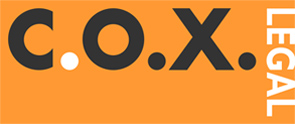The majority of non-profit organizations (associations, foundations, etc.) now also have websites for their own presentation, information transfer, etc. In particular, the creation of the website is placed in the hands of third parties, the so-called web designers.
According to § 24 Abs. 1 sentence 2 KSVG, entrepreneurs are also obliged to pay the artists’ social security contribution if they (i) carry out advertising or public relations work for its own purposes and (ii) do not only occasionally commission independent artists or publicists.
In its decision of 25.02.2011, ref. S 34 R 321/08 stated succinctly without further explanation: “Web designers are artists within the meaning of § 1 KSVG.”
This statement is catchy, but undifferentiated. In addition, the question arises for non-profit corporations as to whether they are also covered by the definition of entrepreneur in Section 24 KSVG.
Web designer ≠ Web designer
The Federal Social Court (BSG) has already assumed since two decisions in 2005 that the work of a web designer is fundamentally an artistic activity and therefore the client is liable to pay tax (BSG judgments of 07.07.2005 – B 3 KR 37/04 R and 07.07.2005 – B 3 KR 29/04 R).
However, the BSG has drawn up a list of criteria as to when it can be assumed that a web designer is working as an artist. The BSG essentially refers to the job description available from the Federal Employment Agency under the term web designer, including a clearly defined catalog of tasks.
The main focus of activities here is on the
- Advising customers on the design of screen pages for the Internet or the company intranet
- Design of interactive products, especially for the internet and intranet
- Implementation of the design of websites and individual screen contents with the help of various software programs.
If such services are provided, the person in question is a web designer whose remuneration is subject to the artists’ social security contribution if the other requirements of Section 24 KSVG are met.
No privileges for non-profit corporations
The plaintiffs in the proceedings before the Dortmund District Court, a registered association recognized as a non-profit organization, had placed 15 orders with independent contractors over a period of four years. This involved the creation of invitation flyers, conference flyers, letterheads, business cards, logos, posters, illustrated photos for a training book and the design and programming of the website.
The SG Dortmund rejected a privileged treatment of non-profit organizations within the framework of the artists’ social insurance. In his opinion, the legal form and the form of financing through public funds are irrelevant. Direct revenue generation through advertising or public relations measures and thus an entrepreneurial activity in the narrower sense is not required.
This is also in line with the case law of the BSG. The court has repeatedly ruled that the KSVG applies a concept of entrepreneur under social insurance law. According to the BSG, it is sufficient for the assumption of an enterprise in this sense that public or private institutions are financed in whole or in part by subsidies from public budgets, membership fees, donations or other contributions. An intention to make a profit is not required (cf. already BSG, 01.10.1991, 12 RK 33/90 as well as BSG, Urt. v. 20.11.2008 – B 3 KS 5/07 R mwN.).
Practical tip
When commissioning third parties, non-profit organizations as well as other organizations operating on the market in any way must check whether this triggers a KSK obligation. As the case in question shows, this is often the case more quickly than the affected parties themselves think.
